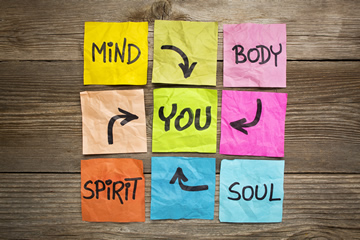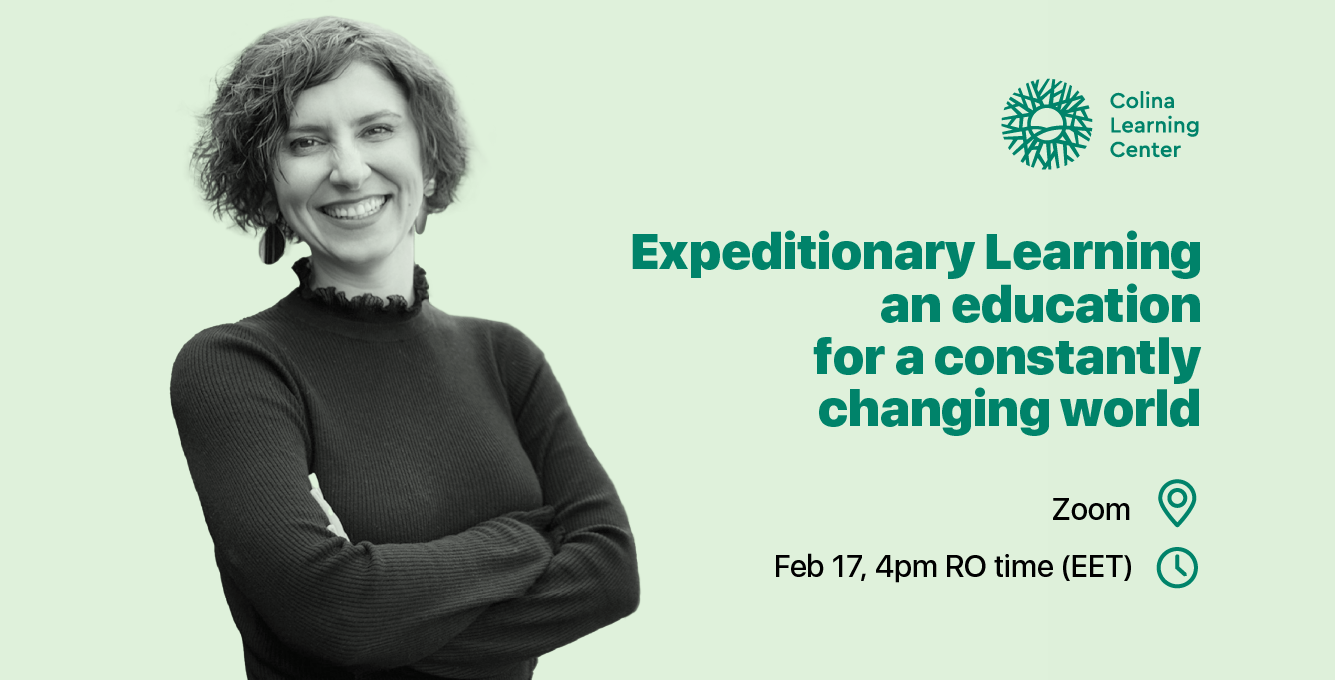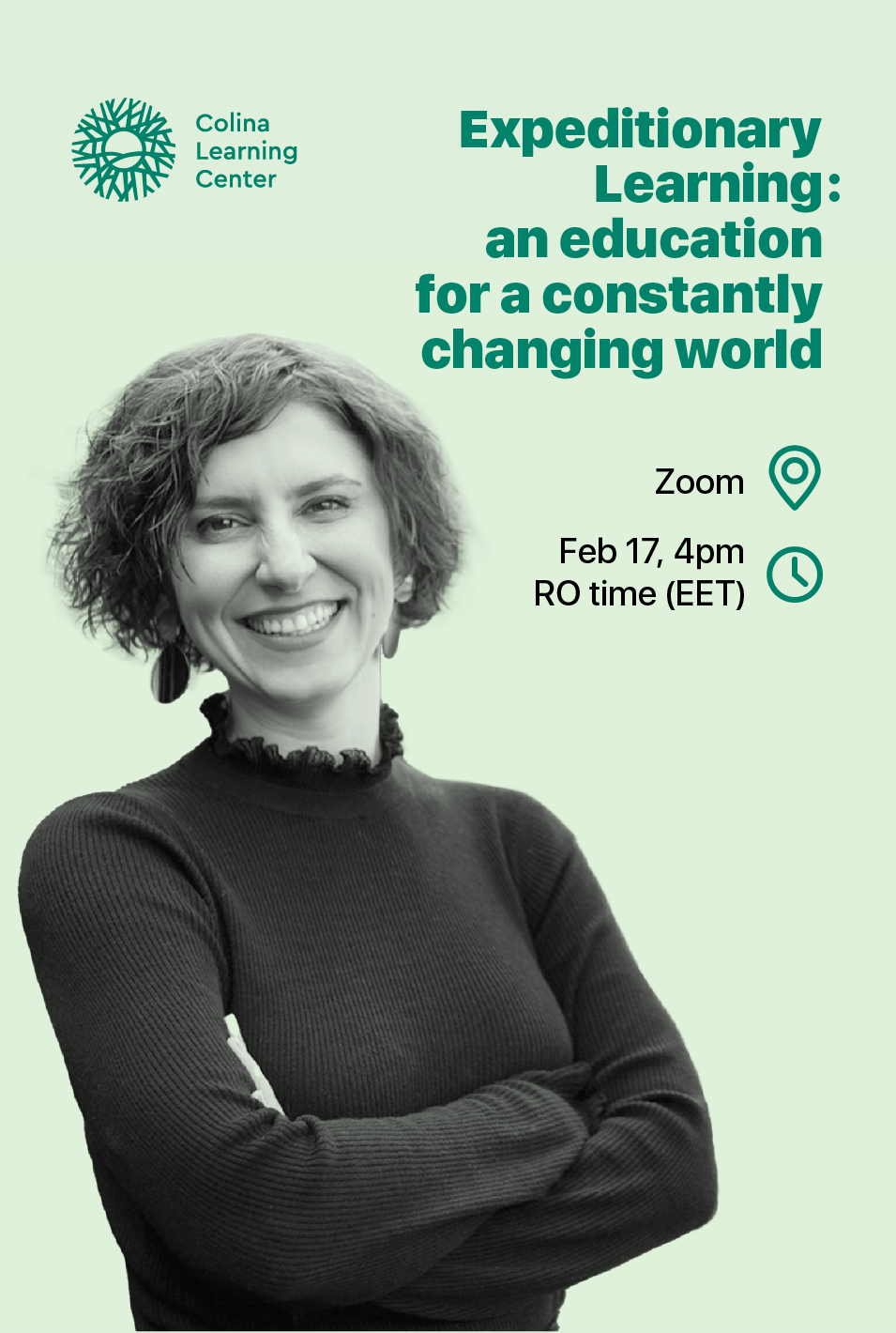What is the curriculum of life?
What does life want to teach us?
Life wants us to learn what it takes to enjoy it fully. These are the only worthwhile objectives of any education. For the life we live today, the objectives need to go wider and deeper and longer than any school objectives ever did.
- They need to be broad enough to cover all areas of life: intellectual, physical, emotional and spiritual.
- They need to be complex enough to suit an unpredictable life: from information, skills and actions to the higher orders of thinking that help us make sense of the world.
- They need to stretch long enough for the brain to fully develop (around 25 years old) and further through the stages of adult development.
Why do I care about educational objectives?
When I started school in Romania, teachers wanted to teach me 2 things: information and obedience.
Let’s be more specific: They wanted me to know the information on the day of the test. It didn’t matter if I remembered it later. (I didn’t. I forgot almost everything. I am 100% normal, the brain doesn't remember information like this). Obedience: they wanted this always. For us to listen to them. “You should listen to your teachers”. We did and we learned to only use their thoughts and words as loyal carbon copies.
The educational objectives of my teachers in Romania: Occasional demonstration of knowledge of information plus a constant demonstration of obedience.
It was communist Romania and, then, it wasn’t communist any more. I got one year as an exchange student in the US. Here I was supposed to prove other things. Show them I understood. Develop some actual skills. Stuff we could actually use later on in life. And I did remember: for instance in my 11th grade in the US I did the single most useful subject in my whole career as a student: public speaking. It taught me a priceless skill which had a huge impact in my adult life. Thank you Mr. Benton from Hayward High School, Wisconsin.
The educational objectives of my teachers in the US: occasional demonstration of knowledge, some understanding of information, and some work skills.
Only when I became an adult did I realize the real requirements of life. To manage myself. Know what I want. Be able to build good relationships. Know what to do with money. To know how to learn by myself. To know what to say ‘yes’ to and ‘no’ to. Show resilience in front of life’s persistence not to go according to my plans.
And I felt unprepared. I have a distinct memory of me in my 20s when I actually felt betrayed by all the adults in my life. Parents and teachers: why did you make me spend 20 years of school to learn all that useless stuff when you knew what was coming? Why?
Then I started teaching myself the only worthwhile educational objectives: those of life. We know what they are because as adults living our lives, we are asked by life to know what we do on a daily basis. The only educational objectives of school should be the ones relevant to the reality of our lived life.
So what should schools actually teach?
Educational objectives need to be broad enough to cover all areas of life: intellectual, physical, emotional and spiritual.
If you look at a traditional school curriculum, you will find objectives that fall almost entirely in the intellectual sphere. Traditionally they are neatly organized into these boxes they call "subjects". For instance, in Romanian high schools you have 14 subjects.
This is the simplest way to organize learning. It is also ineffective because our brain and reality do not contain perfectly organized information. Life insists on making a mess, blending together physics and chemistry and creativity and all of the rest in a wondrous entanglement.
Fortunately, some schools have paid attention and now we have cross-curricular objectives related not only to the information itself, but to the connections we can make between subjects. Subjects like 'combined science' or 'humanities' or 'music and movement.
Without the connections between subjects, we receive a lower level of learning. With the connections, we become functionally literate, able to actually use all of those things teachers try to teach us.
Still, we are stuck in the paradigm of an abstract intellectual life. If you look at different studies on what makes us happy in life, other things are critical.
Health first of all. Our body. We live in our body, that is where life happens. As we live longer and longer lives in these bodies, we need to ensure they are comfortable and ‘safe homes’. We need to learn about nutrition, fitness, body chemistry, aesthetics and other aspects that enable us to turn our bodies into a great place to live life.
The physical sphere needs to include the spaces where we live. The home and school and office and town. Also, our one and only shared home, the planet. No longer can we forget to teach children how their physical presence in the world, (their choices of clothes, activities and food), have an impact on everyone else. We live in our body and on our Planet and we need to learn to treat them both as the temples of our life, with care and reverence.
A great mind and a great body are only important if they are accompanied by great feelings. If life doesn't 'feel good', it is not a good life. And the good feelings in life come first of all from our emotional life. Emotional intelligence. The relationship with self and the relationship with others.
The fundamentals of emotional mastery are self-awareness and self-control. A study in New Zealand[1] that followed over 1000 children for more than 2 decades identified how childhood self-control predicts physical health and financial success.
If you were to guess, what were the educational objectives of these children in New Zealand? Well, the usual. Maths. Science. Arts.
What would have actually helped? To have as an educational objective the ability to develop focus and self-control. Now, this is an educational objective that any responsible educator must focus on. Yes, pun intended.
Beyond the self, lies a field of 'others'. That's where our contentment lies. The longest human study that exists, the Harvard longitudinal study[2] points out to one thing that is essential to a life that feels good: relationships. Not any relationships, the good kind.
The most worthwhile objective of education might be to help us develop good relationships.
How many of us were taught to 'have a relationship'? Even more importantly, how many of us were taught "how to have a good relationship"? Because it just isn't the same. Nobody taught me. Not explicitly. On the contrary, by example, I was shown many times how to have 'bad relationships'.
"In our family portrait, we looked pretty happy, let's play pretend, act like it comes naturally". Well, Pink knows what educational objectives would have helped her mother and father to stop fighting. Non-violent communication, the art of having difficult conversations, the ability to listen. So many essential communication skills that nobody ever mentioned in school. We need to change this ASAP. Children deserve to learn how to have great relationships, if nothing else.
Body, mind, emotions. Great. Oh, but why? The nagging question that can't be silenced no matter how much Netflix, online browsing or carbohydrates we consume.
All of the above are meaningless if we lack a sense of purpose and engagement. In the past, we were able to extract meaning from a book or from "it's always been done this way". But now there are too many books and nothing is done like before. The world is changing so fast that today's generation is forced to be profoundly spiritual by a way of living that keeps throwing back 'what does this all mean?"
Gen Z is more a purpose-oriented generation. The “Purpose in Higher Education”[3] study performed by Imperative revealed that 47% of Gen Z is purpose-oriented versus only 28% of the entire US workforce. They keep asking 'why?" Why learn, why work, why love and why live in a certain way?
Educators need to help them find the answers. Today's schools have an obligation to make room for the spiritual, ethical and existential conversations. The educational objectives must include that children develop their own sense of values, their 'why' and their own beliefs.
When they "leave" education, as young adults, they should know above all who they are and who this person is they are taking into the world. Their own self. Hopefully, many of the answers will be found there.
When choosing the educational objectives, as educators and parents, we must admit defeat at some point. We can keep adding objectives but we are also called to humbly accept our limitations given the knowledge of our times, the language of our times, the culture of our times. If you had been a parent in the Middle Ages, how could you have taught the law of gravitation? Similarly, what is that common-sense thing that your 21st century mind is blind to? Yeap. You have no idea.
What does this mean for education?
That 'not-knowing is in itself an educational objective of life. Paradoxically, we do need to teach students that they do not know. The mysterious that Einstein mentioned.
“The most beautiful thing we can experience is the mysterious."
We need to help them meet the unknown with a sense of wonder, not of fear. We need to help children befriend their limits and look at the world through a friendly lens given by curiosity, gratitude and humbleness.
All of the rest, body intelligence, IQ and EQ will be brought together by this sense of wonder and acceptance of our polar human nature. We are at the same time intelligent and ignorant, great and small, powerful and yet so vulnerable. The centre of our own universe yet such a tiny speck of dust compared to the greater universe.
The educational objectives of life: to fully enjoy it. All of its parts. Body, mind, heart and spirit. Learn how to make the most of your one great-tiny beautiful life.


